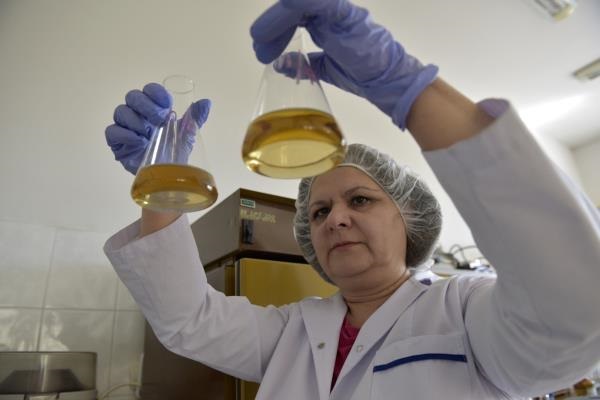
7 June 2021, Rome – Science plays a fundamental role in ensuring the safety of our food now as well as tomorrow as we prepare for new and emerging challenges – that was the main message at a virtual event organised by the Food and Agriculture Organization of the United Nations (FAO) and the World Health Organization (WHO) to celebrate the third edition of World Food Safety Day.
Food safety is vital for people, the planet, world economies and our future, yet millions of people every year still fall ill from eating contaminated food. Making sure food is safe is a critical enabler to achieving food security. Today’s virtual event highlighted the major role that science plays in ensuring food safety and security and preventing foodborne diseases, as well as raising awareness of the topic and calling on everyone to play their part.
In a pre-recorded video message at the event, FAO’s Director-General QU Dongyu emphasised food safety as “a basic requirement for foods with a complex process from farm to table.”
“Food safety is essential to achieve more efficient, inclusive, resilient and sustainable agri-food systems which provide healthy foods for everyone and everywhere,” he said, calling on everyone to “work collectively for global actions”.
WHO’s Director-General Tedros Adhanom Ghebreyesus also recorded a video message for the event, highlighting further that the responsibility to ensure safe, healthy and nutritious food is a collective one and that in times of crisis, food safety is more important than ever.
Science is key
Both the Chief Scientist of FAO, Ismahane Elouafi, and her WHO counterpart, Soumya Swaminathan, took part in a live panel as part of the event to discuss the ways science is helping to innovate and keep our food safe along the food supply chain. Governments, food producers and health professionals use science and innovation to detect food safety hazards and prevent the spread of foodborne diseases.
“I think science is the foundation on which food safety is built,” said Ismahane, during the discussion that highlighted the science-based policy support, technical guidance and capacity development activities that are making a difference across the world.
Both Ismahane and Soumya were passionate about the role of innovation in food safety. “We need to harness innovation,” Ismahane continued, saying that “the increased role of new and emerging technology in food production, processing, packaging etc is key for food safety”.
She highlighted the potential role that genome sequencing, big data and nanotechnology could play in protecting us and increase food safety.
Ismahane noted that FAO’s new Strategic Framework is based on four pillars – better production, better nutrition, better environment and better life – and that “innovation and food safety is at the heart of achieving the Four Betters, to leave no one behind.”
WHO and FAO
Food safety is a shared responsibility, and everyone has a role to play including governments, industry, producers, business operators and consumers.
The theme of the event, ‘Safe food now for a healthy tomorrow’, recognises that the current global crisis caused by the COVID-19 pandemic has emphasized more than ever before the importance of monitoring and addressing food safety. The day also highlights the need for food safety systems to be adapted to respond to disruptions in supply chains and ensure continued access to safe food, event in unprecedented situations like the pandemic.
FAO and WHO are supporting their Members in efforts to provide enough safe food for all and to enable their populations to trust that food safety protects their health. This includes the production of up-to-date publications such as the Microbiological Risk Assessment Guidance for Food (MRA 36), launched at today’s event, which provides a structured framework for assessing the risk of microbiological hazards in food utilizing a variety of tools and techniques.
FAO and WHO also collaborate to provide food safety scientific advice to the Codex Alimentarius Commission, a joint body with 189 members developing international food standards, guidelines and codes of practice to protect consumer health and promote fair practices in food trade.
World Food Safety Day has been celebrated annually by the United Nations since 2019 and aims to draw attention and inspire action to help prevent, detect and manage foodborne risks, contributing to food security, human health, economic prosperity, agriculture, market access, tourism and sustainable development.